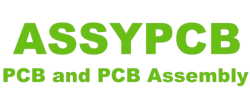Controllers
Controller Interface ICs mainly cover dedicated chips for efficient communication and data conversion between different controllers or functional modules.
1. What is the Core Function of Controller Interface ICs?
Signal Conversion and Protocol Bridging
As a bridge connecting logic level signals with external transmission lines, buses or power supplies, it realizes voltage/current matching and communication protocol conversion between different electrical standards (such as UART to USB, I²C to SPI, etc.). This type of IC ensures that the controller is compatible with various peripherals and transmission media.
Enhanced System Compatibility
Simplifies the complexity of hardware design, allowing embedded controllers to expand functions through standard interfaces (such as USB, I²S, OpenLDI), and supports high-speed data transmission (for example, USB bridge chips can reach 3Mbps).
2. What are the Key Types of Controller Interface ICs?
Communication Bridge IC
For example, USB to serial chips (such as CP2102N) can seamlessly convert the UART signal of the microcontroller to the USB protocol, which is widely used in POS terminals, diagnostic equipment, and other scenarios.
Display Control IC
Contains a display driver, scaling controller, and distortion correction chip (such as S2D13V42), dedicated to automotive dashboard, and head-up display (HUD), to achieve real-time processing and fault monitoring of high-resolution video signals.
Industrial Control Interface IC
In industrial control systems (ICS), as the core component of a remote terminal unit (RTU) or human-machine interface (HMI), it is responsible for data interaction between field equipment and the monitoring layer.
3. What are Controller Interface ICs Used for?
|
Field |
Application |
Representative Technology |
|
Consumer Electronics |
USB Peripherals (Keyboards, Dongles) |
USB Audio/Data Bridge IC |
|
Automotive Electronics |
Integrated Instrument Panel, Central Control Display System |
Bridge IC Supporting eDP/OpenLDI |
|
Industrial Automation |
SCADA System Equipment Communication |
Interface IC supporting Modbus/PROFIBUS |
|
Communication System |
ISDN User-side Digital Telephone Interface |
Dual Controller Power Management IC |
4. Design Trend of Controller Interface ICs
Modern Controller Interface ICs are developing towards high integration and intelligent safety, for example:
Complex functions such as built-in capacitive touch detection and Ethernet physical layer;
Automotive-grade chips integrate safety mechanisms such as signal integrity monitoring and fault diagnosis.
Such chips are the key hardware foundation for embedded systems to achieve modular expansion and cross-platform interaction.
